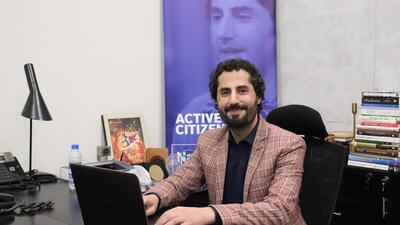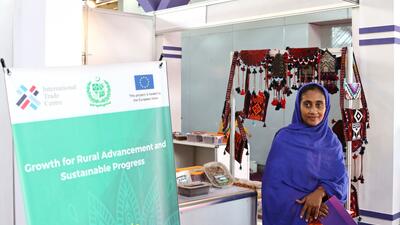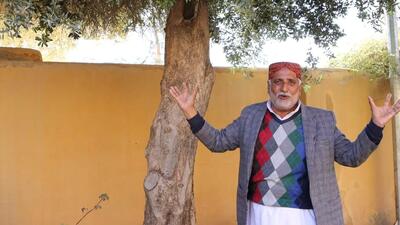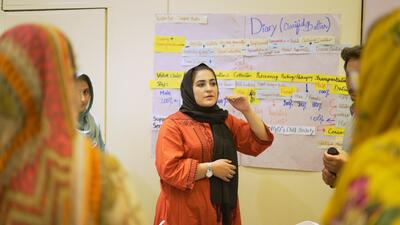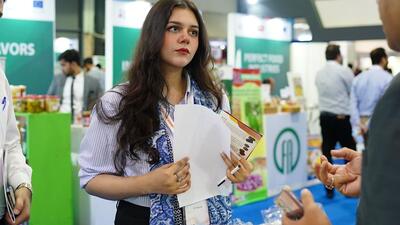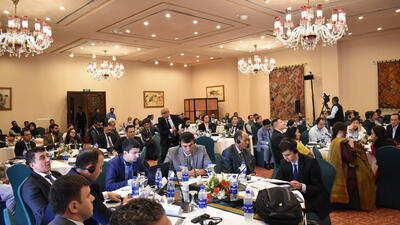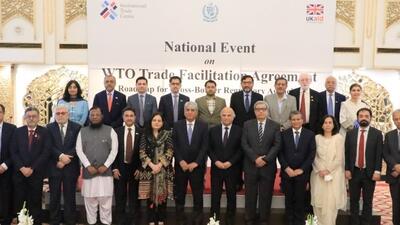Pakistani commerce and trade group trainees officers awarded internationally recognized training certificate under EU funded TRTA II programme
An intake of 35 trainee officers of Commerce and Trade Group graduated from the Pakistan Institute of Trade and Development (PITAD) today after successful completion of a nine month long Specialized Training Programme (STP). The occasion was of particular significance as for the first time trainee officers will also obtain a PITAD and the Switzerland based World Trade Institute (WTI) Joint Certificate in “International Trade Law and Commercial Diplomacy” for successfully completing modules jointly developed by the two institutes which also forms part of the STP programme. The PITAD training is part of ITC support under a European Union (EU) funded Trade Related Technical Assistance programme (TRTAII) in Pakistan.
Mr. Zafar Mehmood, Secretary of the Ministry of Commerce, addressed the graduates and expressed his appreciation of the efforts of PITAD, the ITC and WTI to make the programme a success. He thanked the EU for their continuous support to Pakistan in the field of trade related technical assistance. He stressed the importance of trade related capacity building and domestic regulatory reform for export competitiveness and to benefit from the vast opportunities of international trade.
Acting EU Ambassador to Pakistan, Mr. Pierre Mayaudon, showed his satisfaction over the successful implementation of the trade policy programme in light of his participation in of some of its events. He showed the commitment of his delegation to provide technical assistance to Pakistan for enhancing their export competitiveness. He highlighted that the EU wants to help Pakistan through trade instead of aid and that the current duty waiver on the import of 75 items from Pakistan to the EU was a glaring example of that commitment.
Adding to this, Mr. Thomas Cottier, Managing Director of WTI, stated “I cannot emphasis more how important the strengthening of domestic institutional capacity for effective trade policy formulation is for Pakistan institutions in advancing their trade related knowledge and research capacities and in better promoting Pakistan’s trading interests and prospects.” He further remarked “that while developing the training modules and other interventions, special attention has been focused on the needs of Pakistan and every effort was made to address trade related constraints from a local perspective.”
Mr. Rajesh Aggarwal, Chief of the Business and Trade Policy section, ITC, detailed how the capacity of PITAD is being strengthened – that is by “augmenting their regular training curriculum, which includes most importantly the Specialized Training Programme, and also their capacity to respond to the immediate needs of government officers by giving ad-hoc training courses.” He stressed the importance of building PITAD’s capacity as a way to build the technical capacities of Government officers to comprehend trade policy issues. In the context of the partnership between the WTI and PITAD for training of the trainers and upgrading the training modules, he congratulated “both PITAD and their master trainers who have successfully upgraded the modules and in fact, put them in use for imparting training to the participants of the Specialized Training Programme.”
He also made broader remarks about the capacity component and how the strengthening of PITAD is part of this plan – the programme has developed a “three pronged approach of providing assistance in upgrading technical skills of government officers, building research and analytical capabilities and promoting an inclusive approach to trade policy formulation.”
The trade policy component of the TRTA II programme is implemented by the ITC and aims at trade policy capacity building. ITC has arranged a partnership between the WTI and PITAD for training of the trainers and upgrading training modules. In 2011, seven master trainers and seven trade policy areas were selected for intervention, with a further seven being developed in 2012. A longer term objective is that all current and new modules of PITAD will be enhanced through this arrangement.




